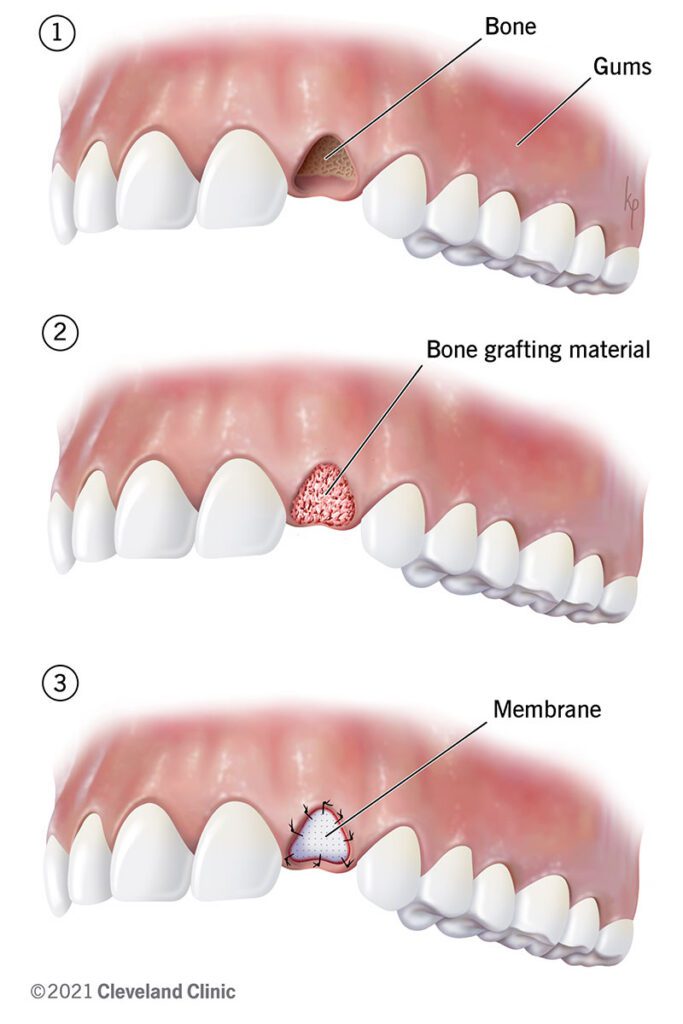Dental bone grafting is a procedure used to increase the volume and density of the jawbone to provide support for dental implants and other dental restorations.

The step-by-step treatment procedure for “Bone Grafting” at Coral Dental Implants
The dentist will review the patient’s medical history and conduct a thorough examination, such as X-rays or CT scans. This will assess the area requiring the graft.
Local anaesthesia is given to numb the graft site. Sometimes, sedation or general anaesthesia may be used, especially for more extensive grafting procedures.
The surgeon incurs the gum tissue to expose the bone at the graft site. The area is then cleaned and prepared for the graft.
The chosen graft material is placed in the prepared area. The material may be shaped and secured to ensure proper integration with the existing bone.
The graft material is secured in place using special membranes, screws, or other fixation devices to prevent movement during healing.
The gum tissue is repositioned over the graft and sutured to promote healing and protect the graft from infection.
The initial healing period takes about one to two weeks. Over several months, the graft material integrates with the existing bone, forming a solid foundation. This process is called osseointegration.
Regular follow-up appointments are necessary to monitor the healing process and ensure the graft integrates well.